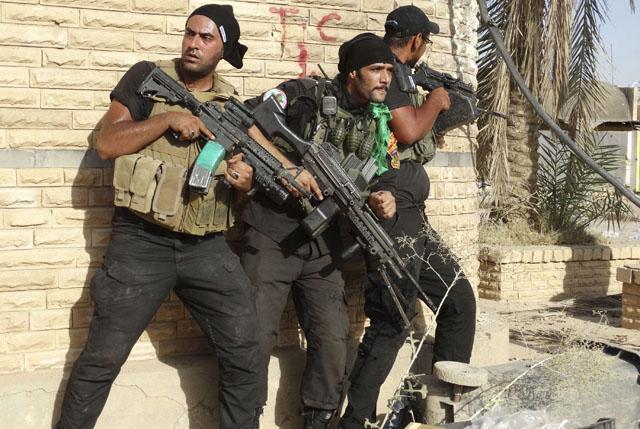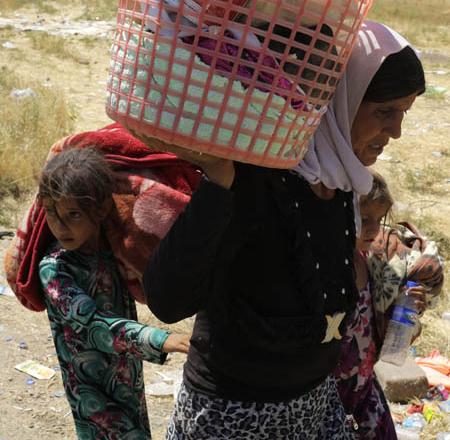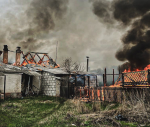You are here
Iran seeks alternative to Maliki to hold Iraq together — sources
By Reuters - Aug 05,2014 - Last updated at Aug 05,2014

ANKARA/BAGHDAD — Regional power broker Iran believes Iraqi Prime Minister Nouri Al Maliki is no longer able to hold his country together and is looking for an alternative leader to combat a Sunni Islamist insurgency, senior Iranian officials said on Tuesday.
Political deadlock since an inconclusive general election in April has paralysed efforts to fight back against Islamic State rebels who have captured swathes of northern and western Iraq and Syria and have threatened to march on Baghdad.
One Iranian official, who spoke to Reuters on condition of anonymity, said Tehran was working with Iraqi factions to seek a replacement for Maliki, but there were few viable alternatives.
“We have reached the conclusion that Maliki cannot preserve the unity of Iraq anymore, but Ayatollah [Ali] Sistani still has hopes,” said the Iranian official, referring to Iraq’s top Shiite cleric.
“Now, Ayatollah Sistani also backs our view on Maliki.”
“There are not many candidates who can and have the capability to preserve unity of Iraq. Our ambassador to Iraq has had some meetings in the past days with relevant groups and some of the candidates,” the first Iranian official said.
Political allies said Maliki, seen as an authoritarian figure whose sectarian agenda has destabilised Iraq, had no intention of stepping aside despite mounting pressure from Sunnis, Kurds, some fellow Shiites and now Iran.
Maliki, a relative unknown when he came to office in 2006, has stayed on in a caretaker capacity since the April vote and said he would seek a third term, despite widespread opposition.
An Iraqi minister, speaking on condition of anonymity because of sectarian tensions within the caretaker government, confirmed that there was a marked change in the position of Tehran, the biggest foreign influence in Iraq.
The United States has urged Iraqi politicians to form a more inclusive government that can unify Iraqis and take on the Islamic State, Al Qaeda spinoff that swept through the north in June, almost unopposed by Maliki’s US-trained army.
The task gained more urgency over the weekend after the group captured three more towns and a fifth oil field and reached a major dam after routing Kurdish fighters, who were seen as one of the few forces that could stand up to the militants.
The Islamic State, which has declared a caliphate in parts of Iraq and Syria it controls, poses the biggest threat to Iraq’s security since the fall of Saddam Hussein in 2003 in a US-led invasion.
A senior Iranian security official said Tehran was far more concerned with stabilising Iraq than with standing by Maliki, whom it long supported.
“With Maliki in power, Iraq will be divided. To fight against the Islamic State, Iraq needs a powerful government and we back this idea. A divided Iraq is a threat to Iran’s national security,” the second official said.
Political bickering and complex procedures are holding back efforts to form a power-sharing government as the Sunni Islamic State consolidates and fuels sectarian tensions that have returned violence to levels not seen since 2006-2007.
According to the constitution, Iraq’s president has until Friday to ask the person nominated by the biggest bloc in parliament to form a government within 30 days.
But a dispute has arisen in the dominant Shiite alliance. Maliki insists his State of Law coalition which won 94 seats in the April parliamentary election is the biggest, while others say it should be counted as part of the alliance and therefore is not entitled to nominate a prime minister on its own.
Maliki, whose sectarian policies critics say have pushed some Sunnis including powerful and heavily armed tribes to support the Islamic State, has shown no sign of readiness to let go of power.
After spending years on the run abroad plotting Saddam’s downfall, he was thrust into power with the support of the United States and enjoyed strong backing from former President George W. Bush even as his sectarian agenda grew.
Maliki placed political loyalists in the military and government, sidelining Sunnis.
His core supporters dismissed talk of alternatives.
“Everything that has been said about changing our candidate for the prime minister post is baseless,” said Mohammed Al Saihoud, a State of Law MP.
“State of Law is the biggest bloc in parliament and our only candidate is Nouri Al Maliki. It’s our constitutional prerogative and we are determined to stick to this right.”
Speculation has been rising that the ruling Shiite coalition, the National Alliance, would favour a new prime minister to end the political stalemate.
The Iraqi minister said several names have been floated.
National Alliance chief Ibrahim Jaafari, who was Maliki’s predecessor, is seen as more moderate. But the trained physician was seen as ineffective against rising sectarian violence when he was in office.
Jaafari spent almost a decade in Iran from 1980 to escape Saddam’s crackdown on a clandestine Shiite Islamist movement.
Ahmad Chalabi, the secular Shiite politician whose false assertions about weapons of mass destruction encouraged the Bush administration to invade Iraq, is another contender, political sources say.
Iraqi officials say behind-the-scenes attempts have been made to give Maliki a face-saving exit. Under the proposal, Vice President Khudhaier Al Khuzaie would become prime minister and Maliki would take his largely honorific job.
Related Articles
Regional power broker Iran believes Iraqi Prime Minister Nouri Al Maliki is no longer able to hold his country together and is looking for an alternative leader to combat a Sunni Islamist insurgency, senior Iranian officials said on Tuesday.
Newspapers in Sunni-dominated Saudi Arabia on Sunday blamed Shiite Iraqi Prime Minister Nouri Al Maliki for unrest sweeping his country, saying his “sectarian” polices are taking Iraq to a “devastating civil war”.
An ever more isolated Nouri Al Maliki again protested his removal as Iraqi prime minister on Wednesday as his former sponsor in Iran publicly endorsed a successor who many in Baghdad hope can halt the advance of Sunni jihadists.
















